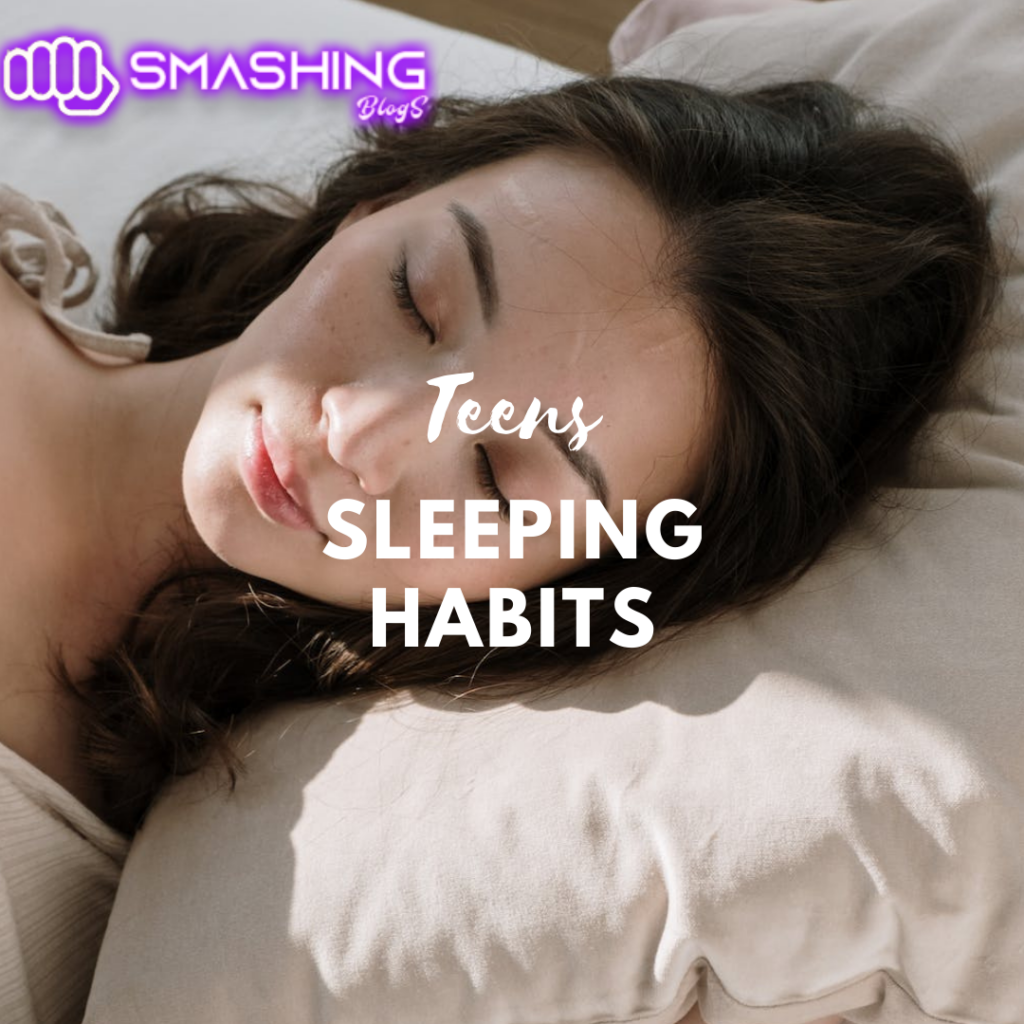Sleep is an essential aspect of our lives, and it becomes even more critical during adolescence. As teenagers undergo significant physical and psychological changes, their sleep habits can be profoundly affected.
The Adolescent Brain and Sleep
In adolescence, the brain undergoes significant transformations, notably the maturation of the prefrontal cortex, responsible for decision-making, impulse control, and social behavior. These changes can influence a teenager’s sleep patterns. The circadian rhythm, the body’s internal timekeeper governing the sleep-wake cycle, undergoes a shift during adolescence. This often turns teenagers into “night owls,” with a natural inclination to stay awake later at night and sleep in the morning.
This circadian shift is primarily attributed to the delayed release of melatonin, a hormone crucial for regulating sleep. In teenagers, melatonin is released later in the evening, making it difficult for them to fall asleep early. This natural misalignment between school schedules and a teenager’s biological clock can result in sleep deprivation.
The Impact of Sleep Deprivation
Sleep is crucial for physical, cognitive, and emotional well-being. For teenagers, in particular, sleep plays a pivotal role in their growth, academic performance, and emotional health. However, sleep deprivation is a common problem among teenagers. Here are some of the consequences:
Academic Performance
Lack of sleep can impair a teenager’s ability to concentrate, remember information, and solve problems. These cognitive deficits can significantly impact their academic performance.
Mood and Emotions
Sleep deprivation can lead to mood swings, irritability, and an increased risk of developing mood disorders, such as depression and anxiety.
Physical Health
Sleep is vital for physical growth and development. It supports the immune system and helps the body recover from physical stress. Inadequate sleep can lead to physical health issues.
Risky Behavior
Sleep-deprived teenagers are more likely to engage in risky behaviors, such as substance abuse, reckless driving, and unsafe sexual practices.
Factors Affecting Teen Sleep Habits
Several factors contribute to the sleep habits of teenagers:
Technology
The use of smartphones, computers, and television before bedtime can interfere with a teenager’s ability to fall asleep. The blue light emitted by these devices can suppress melatonin production.
School Schedules
Early school start times can be especially challenging for teenagers with delayed sleep-wake cycles. Some schools are addressing this issue by adjusting their schedules.
Homework and Extracurricular Activities
The pressure to excel academically and participate in extracurricular activities can lead to late nights and inadequate sleep.
Peer Pressure
Teens often stay up late due to social and peer pressure, which can disrupt their sleep patterns.
Caffeine and Diet
Consuming caffeine, especially in the afternoon or evening, can make it difficult for teenagers to fall asleep. Poor dietary choices can also affect sleep.
Tips for Healthy Sleep Habits
While it can be challenging for teenagers to get enough sleep, several strategies can help improve their sleep habits:
Establish a Consistent Sleep Schedule
Encourage teenagers to go to bed and wake up at the same time every day, even on weekends. This helps regulate their circadian rhythm.
Create a Relaxing Bedtime Routine
Creating a calming bedtime routine, such as reading a book or taking a warm bath, can signal to the body that it’s time to sleep.
Limit Screen Time Before Bed
Discourage the use of electronic devices with screens at least an hour before bedtime. The blue light from screens can interfere with melatonin production.
Create a Comfortable Sleep Environment
Make sure the bedroom is conducive to sleep. This includes a comfortable mattress, appropriate room temperature, and minimal noise and light.
Be Mindful of Diet and Caffeine
Avoid heavy or spicy meals close to bedtime, and limit caffeine intake, especially in the afternoon and evening.
Encourage Physical Activity
Regular exercise can promote better sleep. However, teenagers should avoid intense physical activity close to bedtime.
Manage Stress
Teens often experience stress from academic and social pressures. Teach them stress management techniques, such as deep breathing or meditation.
Limit Napping
While short naps can be rejuvenating, long or late-afternoon naps can disrupt nighttime sleep. Encourage shorter, earlier naps if needed.
Support from Schools
Advocate for later school start times if your teenager’s school schedule conflicts with their natural sleep-wake cycle. Many studies have shown the benefits of later start times for academic performance and well-being.
Understanding the science behind sleep habits among teenagers is crucial for both parents and adolescents themselves. By implementing healthy sleep habits and making adjustments where necessary, teenagers can achieve the restorative and restful sleep they need to thrive during this critical phase of their lives.


